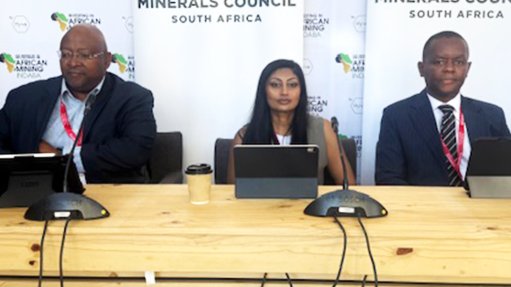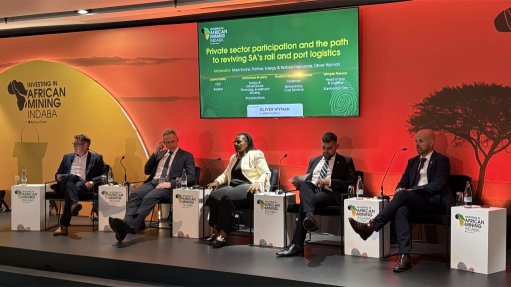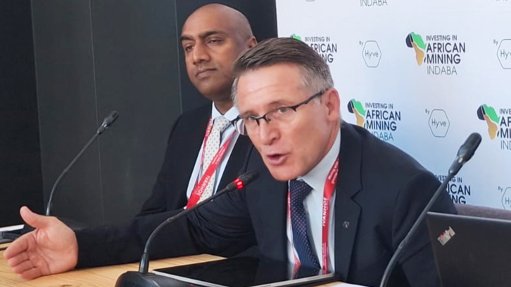Association futureproofs artisanal careers


ZIZILE LUSHABA-NYAWO To address the funding gap and scale its impact, Seifsa is actively pursuing public-private partnerships aimed at strengthening resources, expanding opportunities for learners and enhancing the overall sustainability of its training initiatives
Photo by Seifsa
In direct response to President Cyril Ramaphosa’s call for futureproofed skills and increased artisan production through technical and vocational education and training (TVET) colleges, the Steel and Engineering Industries Federation of Southern Africa (Seifsa) has invested in its own Seifsa Training Centre (STC).
According to Seifsa human capital and skills development executive Zizile Lushaba-Nyawo, the centre, which is currently offering nine accredited trades in occupational qualifications, is working to align a tenth – a toolmaker trade – with modern occupational standards under the Quality Council for Trades and Occupations.
This transition is more than administrative – it reflects a fundamental shift in how technical skills are developed and applied in South Africa’s evolving industrial landscape.
“This aligns with government’s emphasis on work-integrated learning, industry-relevant education and employment-readiness – all of which are critical elements of the national skills development agenda,” explains Lushaba-Nyawo.
Through partnerships with the Manufacturing, Engineering and Related Services Sector Education and Training Authority, TVET colleges and its own member companies, Seifsa has built a strong framework that supports national skills goals while remaining anchored in real-world industry needs.
Additionally, it is helping TVET colleges implement occupational qualifications alongside the Centres of Specialisation programme – initiatives that are essential to closing the country’s skills gap.
Lushaba-Nyawo states that “these partnerships not only strengthen the quality and relevance of vocational training but also reinforce Seifsa’s broader mission to reposition blue-collar work as a first-choice career”.
Modernising Trades
One of the most significant developments at the STC has been the overhaul of the legacy tool, jig and die programme. The older qualification, aligned with National Qualification Framework (NQF) level four, focused primarily on conventional press and forming tools.
The new occupational qualification, by contrast, has shifted to NQF level five and now incorporates digital technologies such as computer-numerical control, milling and turning.
“It introduces modernised learning outcomes applicable to the metal, steel and plastics industries,” Lushaba-Nyawo explains. “The updated qualification also emphasises high-end precision manufacturing, equipping the modern toolmaker with the skills to operate across a broad range of industries.”
This expansion in scope has opened up new employment avenues for toolmakers beyond the metals industry, reflecting the STC’s drive to prepare artisans for a diverse, technology-driven economy.
Further, Seifsa works closely with employers to provide on-the-job training opportunities through apprenticeships and learnerships.
Lushaba-Nyawo highlights that several Seifsa member companies have signed formal agreements with the STC to host learners and offer structured practical experience – often the final step in transforming a trainee into a skilled worker.
Despite financial constraints, the STC continues to invest in advanced training equipment and facilities. Seifsa also consults with industry and global training bodies to ensure its programmes meet both local and international standards.
Lushaba-Nyawo points out that the results have been promising, with 60% to 70% of the STC-trained artisans being absorbed into the industry upon graduation.
“To address the funding gap and scale its impact, Seifsa is actively pursuing public-private partnerships aimed at strengthening resources, expanding opportunities for learners and enhancing the overall sustainability of its training initiatives,” she states.
Another key focus of the STC’s training model is inclusivity, with nearly 15% to 20% of its learners having disabilities, including employees who are re-entering the workforce after sustaining occupational injuries.
Moreover, with support from partners, such as insurance companies, the Compensation Fund and Rand Mutual Assurance, the centre provides customised training and clinical support to help these individuals succeed.
Lushaba-Nyawo notes that “these individuals are reintroduced to the workforce through the acquisition of new skills, ensuring their safety and long-term success”.
The STC’s efforts do not stop at training. Through its business incubation hub, newly qualified artisans are afforded entrepreneurship training, mentorship and access to STC’s equipment and facilities, thereby lowering the barrier to entry for starting a small business.
Seifsa has also launched career days at the centre, inviting youth to explore vocational paths and understand the financial and career potential of artisan work. This initiative, alongside bursary support and the sharing of inspirational success stories, forms part of a broader campaign to uplift the image of skilled trades.
“Seifsa is committed to promoting the respect and long-term viability of artisan professions as fulfilling and respected career choices,” Lushaba-Nyawo concludes.
Article Enquiry
Email Article
Save Article
Feedback
To advertise email advertising@creamermedia.co.za or click here
Press Office
Announcements
What's On
Subscribe to improve your user experience...
Option 1 (equivalent of R125 a month):
Receive a weekly copy of Creamer Media's Engineering News & Mining Weekly magazine
(print copy for those in South Africa and e-magazine for those outside of South Africa)
Receive daily email newsletters
Access to full search results
Access archive of magazine back copies
Access to Projects in Progress
Access to ONE Research Report of your choice in PDF format
Option 2 (equivalent of R375 a month):
All benefits from Option 1
PLUS
Access to Creamer Media's Research Channel Africa for ALL Research Reports, in PDF format, on various industrial and mining sectors
including Electricity; Water; Energy Transition; Hydrogen; Roads, Rail and Ports; Coal; Gold; Platinum; Battery Metals; etc.
Already a subscriber?
Forgotten your password?
Receive weekly copy of Creamer Media's Engineering News & Mining Weekly magazine (print copy for those in South Africa and e-magazine for those outside of South Africa)
➕
Recieve daily email newsletters
➕
Access to full search results
➕
Access archive of magazine back copies
➕
Access to Projects in Progress
➕
Access to ONE Research Report of your choice in PDF format
RESEARCH CHANNEL AFRICA
R4500 (equivalent of R375 a month)
SUBSCRIBEAll benefits from Option 1
➕
Access to Creamer Media's Research Channel Africa for ALL Research Reports on various industrial and mining sectors, in PDF format, including on:
Electricity
➕
Water
➕
Energy Transition
➕
Hydrogen
➕
Roads, Rail and Ports
➕
Coal
➕
Gold
➕
Platinum
➕
Battery Metals
➕
etc.
Receive all benefits from Option 1 or Option 2 delivered to numerous people at your company
➕
Multiple User names and Passwords for simultaneous log-ins
➕
Intranet integration access to all in your organisation



















